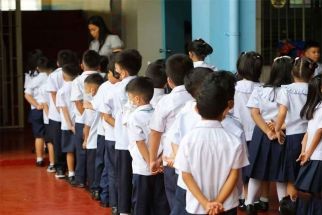‘Phl lacks investigative tools to combat drug trafficking’
MANILA, Philippines - The lack of legislation authorizing judicial wiretapping for drug cases and the lack of reform in the criminal justice system will continue to hamper efforts against international drug trafficking organizations from exploiting the Philippines as a transshipment point and market for illegal drugs, the 2015 International Narcotics Control Strategy Report of the US Department of State said.
The report submitted on March 18 to the US Congress said Philippine drug law enforcement officials continued to make progress in promoting interagency coordination in 2014, as well as cooperation with international enforcement partners.
The increased cooperation led to numerous successful operations, which highlighted the high volume of illegal drugs being smuggled into the Philippines for local consumption, as well as onward shipment to other regional destinations.
However, the lack of progress in approving pending legislation that would authorize wiretapping for drug cases and the lack of reform in the criminal justice system will hamper Philippine efforts against international drug trafficking.
Without effective investigative tools critical to combating drug-related corruption, the Philippine law enforcement will have no full capacity to effectively investigate and prosecute officials engaged in drug related corruption.
“Although Philippine law mandates criminal penalties for corruption by public officials, corruption remains endemic throughout the country,” the report said.
The same report cited media and law enforcement officials in 2014 claiming some local politicians and other government officials received support from drug traffickers, though no criminal cases were filed.
As a matter of policy, the Philippine government does not facilitate drug trafficking or the laundering of proceeds of drug trafficking, and no senior government official has been convicted for conducting such activities.
According to the report, the Philippines remained a transshipment point and destination country for large shipments of methamphetamine, known locally as shabu. Methamphetamine continues to be the primary drug consumed and trafficked within the country.
Philippine authorities also seized two new psychoactive substances for the first time in 2014.
Despite a Philippine government budget reduction for counter-drug activities, Philippine law enforcement conducted numerous successful operations that led to large drug seizures and arrests in 2014.
This success, the report said, was partly due to intensified interagency cooperation and partnership with nongovernmental organizations. Increased bilateral cooperation also led to successful enforcement operations against international drug syndicates operating in the Philippines.
“However, Philippine law enforcement remains unable to effectively identify and prosecute high level leaders of trafficking organizations due to legal restrictions that prevent the use of judicially authorized interception of criminal communications,” the report said.
The Philippine Drug Enforcement Agency (PDEA), the lead counternarcotic enforcement agency in the Philippines, is responsible for pursuing anti-illegal drug investigations and operations nationwide.
PDEA removed 16 agents for a variety of offenses in 2014, including corruption and grave misconduct. Due to budget decreases, no new agents were added in 2014.
According to PDEA, Philippine authorities conducted 11,066 counternarcotic operations, resulting in the arrest of 8,428 suspects and 9,844 cases filed during the first nine months of 2014. There were 42 arrests of elected government officials.
In one of the quickest drug cases ever prosecuted, a provincial board member was found guilty and sentenced to life imprisonment in 2014. There were 37 arrests of law enforcement officers, including a police chief inspector.
Philippine authorities conducted several noteworthy drug seizures during the year and seized 660 kilograms of shabu.
Chinese drug trafficking organizations continue to dominate the methamphetamine trade in the Philippines.
- Latest
- Trending

































